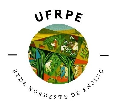Banca de QUALIFICAÇÃO: EMANUELA DA SILVA SOARES
Uma banca de QUALIFICAÇÃO de DOUTORADO foi cadastrada pelo programa.STUDENT : EMANUELA DA SILVA SOARES
DATE: 24/07/2025
TIME: 09:00
LOCAL: RECIFE-PE
TITLE:
MUSIC IN THE EARLY YEARS OF ELEMENTARY EDUCATION AND ITS CONTRIBUTIONS TO TEACHERS' PEDAGOGICAL PRACTICE: A LOOK AT THE SCHOOL CURRICULUM OF A MUNICIPALITY IN THE SERTÃO PARAIBANO REGION
KEY WORDS:
Music; Early Years; Curriculum; Pedagogical practices.
PAGES: 72
BIG AREA: Ciências Humanas
AREA: Educação
SUBÁREA: Ensino-Aprendizagem
SPECIALTY: Métodos e Técnicas de Ensino
SUMMARY:
The importance of music in teaching and learning processes has been discussed by many scholars who intend to emphasize the great contribution that this cultural artifact, used as a didactic-pedagogical strategy, can bring to the integral development of students. The National Curricular Reference for Early Childhood Education seeks to reference the teaching of music considering listening, involvement, understanding, identification, perception, comparison, execution, creation, analysis, and hearing of musical language, making clear the importance of music in valuing the multiple dimensions of cognition. According to Marisa Trench de Oliveira Fonterrada, musical education derives from the values, habits, behaviors, and worldviews present in each society and if music is one of the great disciplines of human knowledge, the value of musical education will be as high as that of other fields of human knowledge. Therefore, music should be part of the school curriculum, considering that it can contribute to the understanding of students' life stories and culture, as well as aiding in learning through playful and enjoyable practices, from a perspective that goes beyond the mere function of entertainment or leisure. The interest in the research topic arose from the researcher's experience as a teacher in the early years of elementary school in a city in the backlands of Paraíba, instigated to understand how music is being contemplated in the school curriculum of this city. Starting from the thesis that music is a cultural artifact that, used as a didactic-pedagogical strategy that transcends the mere aesthetic dimension, enabling multidimensional experiences, can contribute to the being-being that constitutes consciousness, we cast our research gaze on the way in which it is transversalized in the curriculum, as well as on the ways in which it is incorporated by teachers in their pedagogical practices. I summarize the problem presented above in the following research question: From what perspective is music present in the pedagogical practices of elementary school teachers in a city in the backlands of Paraíba and what is its relationship with the school curriculum of this city? To answer the research question, we will analyze how the local curriculum of the elementary school values music as a didactic-pedagogical tool, we will seek to understand the teachers' perception of music as a pedagogical element in their practices in the elementary school years and identify how music contributes to an integrative pedagogical practice and to the critical training of elementary school teachers in the complex relationship between official documents and teaching practice.
COMMITTEE MEMBERS:
Presidente - FRANCISCO NAIRON MONTEIRO JUNIOR
Interna - ANA MARIA DOS ANJOS CARNEIRO LEAO
Interna - GILVANEIDE FERREIRA DE OLIVEIRA
Externa ao Programa - ***.118.734-** - IVONEIDE MENDES DA SILVA - UFRPE
Externo à Instituição - EDSON JOSÉ WARTA - UFS




